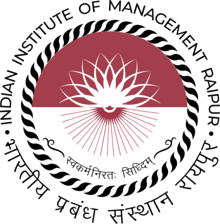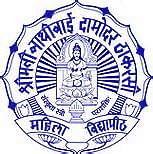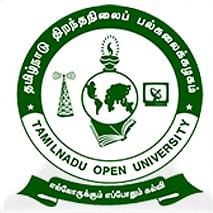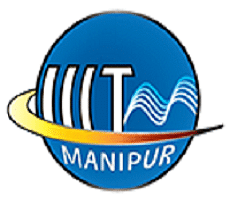Introduction about Ph. D Physiotherapy
Ph.D. in Physiotherapy at top college is a doctoral-level academic program
designed to prepare students for advanced research, teaching, clinical
practice, and leadership roles in the field of physiotherapy or physical therapy.
Physiotherapy is a healthcare profession focused on improving and restoring
movement and function to individuals affected by injury, illness, or disability
through physical interventions, exercise therapy, manual therapy, and other
modalities. A Ph.D. in Physiotherapy provides students with the knowledge,
skills, and expertise to conduct original research, contribute to the
advancement of knowledge in physiotherapy, and address complex issues related
to rehabilitation, healthcare delivery, and patient care.
Here's an
introduction to Ph.D. in Physiotherapy:
Advanced Study of
Physiotherapy Theory and Practice: Ph.D. programs in Physiotherapy offer advanced coursework in
physiotherapy theory, evidence-based practice, research methods, clinical
reasoning, and patient management. Students deepen their understanding of
musculoskeletal, neurological, cardiopulmonary, and other systems-related
conditions, as well as principles of biomechanics, exercise physiology,
anatomy, physiology, and pathology relevant to physiotherapy practice.
Research
Methodologies and Data Analysis: Ph.D. students receive rigorous training in research methodologies and
data analysis techniques used in physiotherapy research. They learn qualitative
and quantitative research methods, experimental design, survey design,
statistical analysis, outcome measures, systematic reviews, meta-analysis, and
research ethics. They develop proficiency in critically evaluating research
literature, designing research studies, collecting and analyzing data, and
disseminating research findings.
Specialization and
Concentrations: Ph.D.
programs in Physiotherapy allow students to specialize in specific areas of
interest within the field. Common areas of specialization may include
orthopedic physiotherapy, neurologic physiotherapy, pediatric physiotherapy,
cardiopulmonary physiotherapy, sports physiotherapy, geriatric physiotherapy,
musculoskeletal rehabilitation, pain management, and movement science. Students
tailor their coursework, research, and dissertation to their chosen area of
specialization, building expertise in a particular aspect of physiotherapy
practice or research.
Dissertation
Research and Writing: A
central component of Ph.D. programs in Physiotherapy is the completion of a
doctoral dissertation. The dissertation is an original research project that
contributes new knowledge to the field of physiotherapy. Students work closely
with faculty advisors or dissertation committees to develop research questions,
design methodologies, conduct data collection, analyze findings, and
disseminate results through scholarly publications and presentations. The
dissertation demonstrates the student's ability to conduct independent
research, critically evaluate existing literature, and advance the evidence
base for physiotherapy practice.
Teaching and
Clinical Training: Ph.D.
students in Physiotherapy may have opportunities to gain teaching experience
and clinical training. They may serve as teaching assistants, lead discussions,
design course materials, and deliver lectures in undergraduate or graduate
physiotherapy programs. They may also participate in clinical rotations,
internships, or supervised clinical experiences to enhance their clinical
skills, interdisciplinary collaboration, and understanding of patient care in
diverse healthcare settings.
Interdisciplinary
Collaboration and Engagement:
Physiotherapy is an interdisciplinary field that intersects with other
healthcare professions, including medicine, nursing, occupational therapy, and
speech-language pathology. Ph.D. students in Physiotherapy have opportunities
to collaborate with scholars and researchers from other disciplines,
participate in interdisciplinary research projects, and contribute to
interdisciplinary initiatives aimed at improving patient outcomes, healthcare
delivery, and rehabilitation services.
Career
Opportunities: Graduates of
Ph.D. programs in Physiotherapy pursue diverse career paths in academia,
research institutions, healthcare organizations, clinical practice, consulting
firms, government agencies, and non-profit organizations. They work as
researchers, faculty members, clinical educators, rehabilitation specialists,
healthcare administrators, policy analysts, and consultants, contributing to
the advancement of physiotherapy practice, research, and education, and
improving the quality of life for individuals with movement and function
impairments.
Overall, a Ph.D. in
Physiotherapy is a rigorous and intellectually stimulating program that
prepares graduates for scholarly inquiry, evidence-based practice, and
leadership roles in the field of physiotherapy. It offers opportunities for
advanced research, clinical expertise, interdisciplinary collaboration, and
professional development, enabling graduates to make meaningful contributions
to the advancement of physiotherapy knowledge, practice, and patient care.
What is admission process for Ph. D Physiotherapy ?
The admission process 2024 for Ph.D.in Physiotherapy program
can vary depending on the institution offering the program and its specific
requirements. However, here is a general overview of the typical admission
process for Ph.D. programs in Physiotherapy:
Research and
Identify Programs: Research
and identify universities, colleges, or institutions that offer Ph.D. programs
in Physiotherapy. Consider factors such as faculty expertise, research
opportunities, program curriculum, facilities, location, and overall fit with
your academic and career goals.
Check Admission
Requirements: Review the
admission requirements for each Ph.D. in Physiotherapy program you are
interested in applying to. Admission requirements may vary but commonly
include:
A master's or
bachelor's degree in physiotherapy or a related field from an accredited
institution. Some programs may prefer applicants with a master's degree, while
others may accept applicants with a bachelor's degree if they have relevant
research experience or professional experience in physiotherapy.
Minimum GPA
requirements for previous academic coursework. The minimum GPA requirement may
vary by program but is typically around 3.0 on a 4.0 scale.
Graduate Record
Examination (GRE) scores. Some Ph.D. programs in Physiotherapy may require
applicants to submit GRE scores, although this requirement may be waived or
optional in some cases.
Letters of
recommendation from academic or professional references who can speak to the
applicant's academic abilities, research experience, and potential for success
in a Ph.D. program in Physiotherapy. The number of letters required may vary by
program, but it is commonly around three letters.
Statement of
purpose or personal statement outlining the applicant's academic and research
interests, career goals, and reasons for pursuing a Ph.D. in Physiotherapy.
This statement provides an opportunity for applicants to demonstrate their
motivation, passion, and fit for the program.
Resume or
curriculum vitae (CV) detailing the applicant's academic background, research
experience, work experience, publications, presentations, and relevant skills.
Writing samples or research
papers demonstrating the applicant's research abilities and interests in
physiotherapy-related topics. These samples provide evidence of the applicant's
research experience, writing skills, and potential for conducting original
research in the field.
Contact Potential
Advisors: Reach out to
faculty members or potential advisors in the Ph.D. in Physiotherapy programs
you are interested in to discuss your research interests and determine if there
are faculty members willing to mentor you and support your research goals.
Prepare Application
Materials: Gather all
required application materials, including transcripts, test scores, letters of
recommendation, statement of purpose, resume or CV, writing samples, and any
other documents specified by the program.
Submit Application: Complete and submit the application form
for each Ph.D. in Physiotherapy program you are applying to. Follow the
application instructions provided by each institution, paying attention to
deadlines and submission requirements.
Pay Application
Fees: Pay any application
fees required by the institutions you are applying to. Some programs may offer
fee waivers for qualified applicants, so be sure to inquire about waiver
options if applicable.
Interview (if
required): Some Ph.D.
programs may require applicants to participate in interviews as part of the
selection process. Prepare for interviews by reviewing common interview
questions and highlighting your qualifications, research interests, and goals
related to physiotherapy.
Submit Additional
Documentation (if required):
If requested by the program, submit any additional documentation or materials
required for the application process, such as samples of your academic or
research work.
Wait for Admission
Decision: After submitting
your application, wait for the admission decision from each institution.
Admission decisions are typically communicated via email, postal mail, or
through an online application portal.
Acceptance and
Enrolment: If you receive
an offer of admission, carefully review the terms and conditions of the offer.
If you decide to accept the offer, follow the instructions provided by the
institution to confirm your acceptance and complete the enrolment process,
which may include submitting enrolment deposits and registering for classes.
It's important to
start the application process early and carefully review the requirements and
deadlines for each Ph.D. in Physiotherapy program you are considering. Be sure
to follow the instructions provided by each institution and reach out to admissions
offices or program coordinators if you have any questions or need clarification
on specific requirements. Additionally, establishing connections with potential
advisors and faculty members can strengthen your application and increase your
chances of admission to Ph.D. programs in Physiotherapy.
What is eligibility for Ph. D Physiotherapy?
The eligibility criteria for Ph.D. Physiotherapy program
can vary depending on the institution offering the program and its specific
requirements. However, here are some common eligibility criteria that are
typically required for admission to Ph.D. programs in Physiotherapy:
Educational
Background:
A master's or
bachelor's degree in physiotherapy or a related field from an accredited
institution is typically required for admission to Ph.D. programs in
Physiotherapy. Some programs may prefer applicants with a master's degree,
while others may accept applicants with a bachelor's degree if they have
relevant research experience or professional experience in physiotherapy.
Minimum GPA:
Applicants are
usually required to have a minimum undergraduate or graduate GPA to be
considered for admission to Ph.D. programs in Physiotherapy. The minimum GPA
requirement may vary by program, but it is typically around 3.0 on a 4.0 scale.
Graduate Record
Examination (GRE) Scores:
Some Ph.D. programs
in Physiotherapy may require applicants to submit scores from the Graduate
Record Examination (GRE), which includes sections on verbal reasoning,
quantitative reasoning, and analytical writing. However, this requirement may
be waived or optional in some cases. Applicants should check the specific
requirements of each program they are interested in applying to determine
whether GRE scores are required and what minimum score thresholds, if any,
apply.
Letters of
Recommendation:
Applicants are
typically required to submit letters of recommendation from academic or
professional references who can speak to the applicant's academic abilities,
research experience, and potential for success in a Ph.D. program in
Physiotherapy. The number of letters required may vary by program, but it is
commonly around three letters.
Statement of
Purpose:
Applicants are
usually required to submit a statement of purpose or personal statement
outlining their academic and research interests, career goals, and reasons for
pursuing a Ph.D. in Physiotherapy. This statement provides an opportunity for
applicants to demonstrate their motivation, passion, and fit for the program.
Resume or
Curriculum Vitae (CV):
Applicants are
often required to submit a resume or curriculum vitae (CV) detailing their
academic background, research experience, work experience, publications,
presentations, and relevant skills. This document provides a comprehensive
overview of the applicant's qualifications and accomplishments.
Writing Samples or
Research Papers:
Some Ph.D. programs
in Physiotherapy may require applicants to submit writing samples or research
papers demonstrating their research abilities and interests in
physiotherapy-related topics. These samples provide evidence of the applicant's
research experience, writing skills, and potential for conducting original
research in the field.
It's important to
note that the specific eligibility criteria for Ph.D. programs in Physiotherapy
may vary from one institution to another, so it's essential to carefully review
the admission requirements of each program you are interested in applying to.
Additionally, meeting the minimum eligibility criteria does not guarantee
admission to a Ph.D. program, as admission decisions are based on a holistic
review of the applicant's qualifications, accomplishments, and fit with the
program.
What is syllabus of Ph. D Physiotherapy?
The syllabus for Ph.D. in Physiotherapy program
can vary significantly depending on the specific focus areas, research
interests, and faculty expertise of the institution offering the program.
However, here is a general overview of the typical components of a Ph.D. in
Physiotherapy syllabus:
Advanced Study of
Physiotherapy Theory and Practice:
Advanced topics in
musculoskeletal physiotherapy: In-depth examination of assessment, diagnosis,
and management strategies for musculoskeletal conditions such as orthopedic
injuries, sports injuries, chronic pain, and post-surgical rehabilitation.
Advanced topics in
neurological physiotherapy: Study of neurophysiology, neuropathology, and
evidence-based interventions for neurological conditions such as stroke,
traumatic brain injury, spinal cord injury, multiple sclerosis, Parkinson's
disease, and cerebral palsy.
Advanced topics in
cardiopulmonary physiotherapy: Exploration of cardiopulmonary anatomy,
physiology, and pathophysiology, as well as assessment and rehabilitation
techniques for individuals with cardiovascular and respiratory conditions such
as heart disease, chronic obstructive pulmonary disease (COPD), and asthma.
Advanced topics in
pediatric physiotherapy: Examination of growth and development, pediatric
conditions, developmental delays, congenital disorders, and pediatric
rehabilitation approaches.
Advanced topics in
geriatric physiotherapy: Study of age-related changes, common geriatric
conditions, fall prevention, mobility issues, and rehabilitation strategies for
older adults.
Research
Methodologies and Data Analysis:
Research design and
methodology: Advanced training in research methodologies and methods used in
physiotherapy research, including qualitative and quantitative approaches,
experimental design, survey design, statistical analysis, outcome measures,
systematic reviews, and meta-analysis.
Research ethics and
responsible conduct of research: Exploration of ethical principles,
regulations, guidelines, and best practices for conducting research involving
human participants, animal subjects, and biomedical research.
Data analysis
techniques: Hands-on training in statistical analysis techniques commonly used
in physiotherapy research, including parametric and non-parametric tests,
regression analysis, analysis of variance (ANOVA), and multivariate analysis.
Specialization
Courses:
Elective courses:
Specialized courses in specific areas of interest within physiotherapy,
tailored to the student's research interests, career goals, and chosen area of
specialization. Topics may include advanced manual therapy techniques, exercise
prescription, pain management, sports rehabilitation, biomechanics,
neurorehabilitation, cardiopulmonary rehabilitation, and pediatric
rehabilitation.
Directed readings
or independent study: Individualized study under the supervision of a faculty
advisor, focusing on advanced topics, specialized research methods, or specific
research questions relevant to the student's dissertation or research interests.
Dissertation
Research and Writing:
Dissertation
proposal development: Development of a research proposal outlining the research
questions, objectives, theoretical framework, research design, methods, data
collection plan, and significance of the doctoral dissertation. Supervised by a
faculty advisor or dissertation committee.
Dissertation
research: Conducting original research, data collection, analysis,
interpretation, and writing of the doctoral dissertation. The dissertation
should make a significant contribution to the field of physiotherapy and
demonstrate the student's ability to conduct independent research, engage with
existing literature, and advance knowledge in their chosen area of study.
Teaching and
Clinical Training:
Teaching practicum:
Teaching assistantship or supervised teaching experiences in undergraduate or
graduate physiotherapy programs. Students gain experience in course design,
lesson planning, classroom management, assessment strategies, and student
engagement.
Clinical training
or internships: Participation in clinical rotations, internships, or supervised
clinical experiences to enhance clinical skills, interdisciplinary
collaboration, and understanding of patient care in diverse healthcare
settings.
Interdisciplinary
Collaboration and Engagement:
Interdisciplinary
seminars or workshops: Opportunities to engage with scholars and researchers
from other disciplines, participate in interdisciplinary research projects, and
contribute to interdisciplinary initiatives aimed at improving patient outcomes,
healthcare delivery, and rehabilitation services.
Research centers
and institutes: Involvement in research centers or institutes focused on
interdisciplinary research areas such as rehabilitation sciences, movement
science, health promotion, biomechanics, or sports medicine.
It's important to
note that the specific syllabus for a Ph.D. in Physiotherapy program may vary
from one institution to another, and students are encouraged to review the
curriculum and course offerings of individual programs to ensure alignment with
their academic and research interests. Additionally, Ph.D. students in
Physiotherapy typically have flexibility to tailor their coursework, research
activities, and dissertation to their specific research interests and career
goals with guidance from their faculty advisors or dissertation committees.












